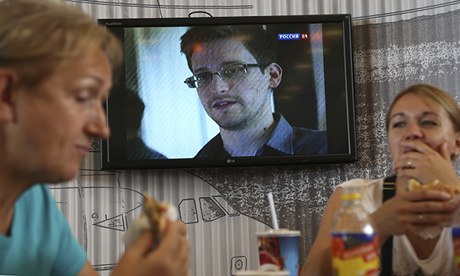
With the Halloween season right around the corner, there are enough tales of humor and horror to keep you busy for another 364 days. Yet, this year the most disturbing image given – the acknowledgement of some of the most influential governments in the world have been monitoring digital communications in various clandestine ways – has seemed to illicit more of a yawn and more of the same.
…But what is, in a way, more alarming is how relaxed many of my professional peers seem to be about it. Many of them are people who do understand how the stuff works. To them, Snowden’s revelations probably just confirm what they had kind of suspected all along. And yet the discovery that in less than three decades our societies have achieved Orwellian levels of surveillance provokes, at most, a wry smile or a resigned shrug. And it is this level of passive acceptance that I find really scary.
What’s even more alarming is that the one group of professionals who really ought to be alert to the danger are journalists. After all, these are the people who define news as “something that someone powerful does not want published”, who pride themselves on “holding government to account” or sometimes, when they’ve had a few drinks, on “speaking truth to power”. And yet, in their reactions to the rolling scoops published by the Guardian, the Washington Post, the New York Times and Der Spiegel, many of them seem to have succumbed either to a weird kind of spiteful envy, or to a desire to act as the unpaid stenographers to the security services and their political masters…
The Guardian is right. Publicly, we’ve just not done this part right – and its scary.
I’m guilty too. I’ve not moved as far or as fast as others have towards making more secure communication practices or crafting online spaces which are better secured from prying eyes. I’ve done a few things, but not nearly enough… most of us in #mobmin haven’t. I don’t know that we can continue to be passive about it. Either we play the role that many in the public space have – ignore it while talking about it only in private – or we take ownership of it and do things differently (whatever that looks like).
I’m in a bit of a weird space. I could do something like what’s had to happen with my personal blog and steps I’ve taken with social networking, or there might be something more drastic of a step to take – like really going back to hosting MMM from a mobile phone (really good method here), and only letting verified connections take place to it – then doing secure RSS feeds from there or something else which is mobile, secure, and open – like OpenRepos.
I don’t know… there are methods of ministry on mobile that we should continue to talk about. But, the other side of that tech and truth is that mobile is also a very monitored and monetized communications media whose aim isn’t connecting (first), its making money and keeping vigilance. Can we accept that and be passive about those issues going forward? Or, does #mobmin adapt to that reality too… teaching better methods, understanding even more the incredible opportunity going forward?


